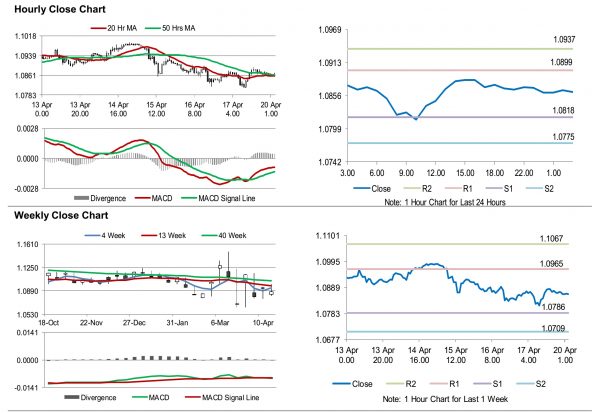For the 24 hours to 23:00 GMT, the EUR rose 0.06% against the USD and closed at 1.0866 on Friday.
On the macro front, Euro-zone’s consumer price inflation slowed to 0.7% on a yearly basis in March, driven by fall in energy prices and compared to a level of 1.2% in the prior month. The preliminary figures had also indicated a level of 0.7%. Additionally, seasonally adjusted construction output dropped 1.5% in February, compared to a rise of 4.0% in the previous month.
In the US, the leading index fell 6.7% in March, compared to a rise of 0.1% in the earlier month.
In the Asian session, at GMT0300, the pair is trading at 1.0862, with the EUR trading marginally lower against the USD from Friday’s close.
The pair is expected to find support at 1.0818, and a fall through could take it to the next support level of 1.0775. The pair is expected to find its first resistance at 1.0899, and a rise through could take it to the next resistance level of 1.0937.
Looking forward, investors would keep a watch on Euro-zone’s current account and trade balance, both for February, along with Germany’s producer price index for March, slated to release in a few hours. Later in the day, the Chicago Fed National Activity Index for March, would keep investors on their toes.
The currency pair is showing convergence with its 20 Hr and 50 Hr moving averages.

